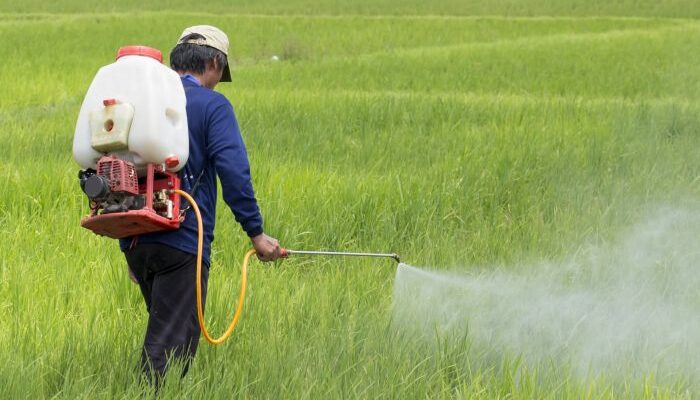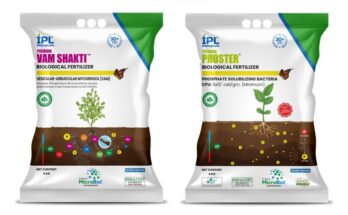As crop protection solutions are crucial for proper management of crop health for higher productivity and income of farmers and sustained growth of the agriculture sector, FICCI today said that GST Council should consider the agrochemical industry’s request favourably seeking reduction of the GST on agrochemicals for the farm sector from current 18 per cent to 5 per cent at the maximum.
The 47th meeting of the GST Council, chaired by Union Finance Minister Nirmala Sitharaman, will be held in Chandigarh on June 28 and 29.
Addressing a press conference on ‘Policy Landscape for a Flourishing Agrochemicals Industry’, organised by FICCI, RG Agarwal, Chair, FICCI Committee on Crop Protection and Chairman, Dhanuka Group said that high Goods and Service Tax (GST) on crop protection chemicals especially hurts small and marginal farmers by increasing their input cost and prompting them to use these essential ingredients in sub-optimal quantities to the detriment of farm output and their own financial health.
“A GST of 18 per cent on agrochemicals is highly unjustified since they act as insurance to not only crop health but also increase their quality, yield and income of farmers. This high rate of 18 per cent is not justified and it should be brought down to a maximum of 5 per cent at par with the fertilisers,” he added.
Speaking on the occasion, Dr Charudatta Digambar Mayee, former agriculture commissioner, Government of India opined that the agrochemical industry acts as a backbone to our farmers and assures them of high yield with better quality produce while mitigating crop losses. In view of the climate changes and emerging threats of pests and disease, there is an urgent need to overhaul the regulatory system for the introduction of new and innovative chemistries and technologies. There is also an urgent need to improve the enforcement mechanism, at several levels, to ensure the supply of high-quality agrochemicals to farmers on a sustainable basis.
You may also like to read: Coromandel International launches 5 new crop protection products
“This can be achieved with the cooperation of the private sector in addition to hiring adequate manpower and strengthening government laboratories, providing the latest analytical instruments, reference standards and making ISO17025 NABL certification mandatory as done under FSSAI Act as well as support from Quality Council of India or other independent organisations,” said Mayee.
“The government must undertake total reforms in the working of the CIB&RC and advise them to implement the decisions taken in the various RCs at the earliest in a transparent manner,” he added.
Also present at the press conference Rajvir Rathi, said, “Farmer producer organisations (FPOs) and collectives can be the vehicle for extension education. We all are working on this.”
Effective and timely implementation of regulatory decisions by the government will help the agrochemical sector to become more efficient in delivering solutions that benefit the agriculture sector in a sustainable manner.
The government has declared pesticides as a champion sector and hence it is essential to align Indian legislations with international laws with a view to attract new technology and investment from developed countries, therefore is it also pertinent to relook at certain provisions of Draft PMB 2020, which was prepared pre-Covid time.
FICCI is organising its 11th Agrochemicals Conference 2022 on the theme ‘Policy landscape for a flourishing Agrochemical Industry’ on June 23 (Wednesday) in New Delhi.





